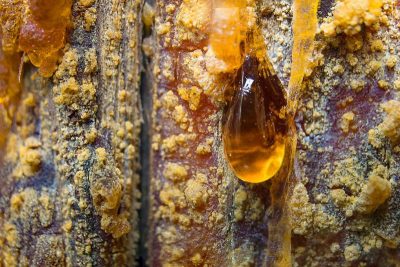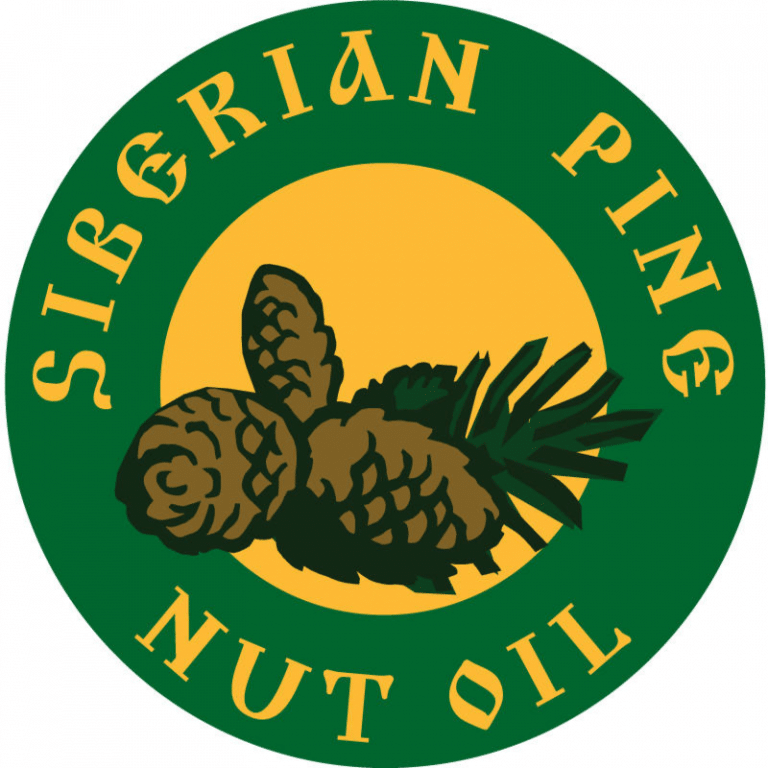How does pine resin extract affect H. Pylori?

According to various estimates, from 50 to 92% of the population are infected with the H. Pylori bacterium. Very often, a person may not know that he is a carrier of this bacterium and may not experience any discomfort associated with it. However, it has been proven that H. Pylori causes the majority of cases of chronic gastritis [1], and is also a risk factor for the development of stomach cancer and gastric mucosa-associated lymphoid tissue lymphoma. [2] At the same time, the official treatment of H. Pylori, although effective, includes drugs that can cause indirect harm to the body: for example, antibiotics require further restoration of the intestinal microflora.
Pine resin and pine nut oil, when taken regularly, help get rid of H. Pylori, while being completely safe substances. They not only have an antiseptic and antibacterial effect, but also neutralize harmful substances formed in the gastrointestinal tract due to H. Pylori and heal the intestinal mucosa.
Antiseptic and anti-inflammatory effect
Terpenes, esters, and alcohols from pine resin are powerful antiseptics. They destroy pathogenic microflora and reduce the rate of reproduction of any harmful bacteria, including H. Pylori. The effectiveness of pine nut oil against pathogenic microorganisms has also been proven by in vitro experiments. [3] In addition, unsaturated fatty acids have an anti-inflammatory effect, neutralizing inflammatory reactions caused by harmful microflora. Inflammation is the cause of the development of numerous gastrointestinal problems.
Intestinal mucosa
Any damage to the intestinal mucosa creates a favorable environment for the proliferation of harmful microorganisms. Resin extract contains:

- vitamin A, the most important vitamin for the health of all mucous membranes of the body.
- terpenes that accelerate the formation of granulation tissue, that is, a healing effect.
- folic acid that accelerates the regeneration of damaged tissues.
Neutralization of harmful substances
The harmful effects of H. Pylori on the gastrointestinal tract are due to the fact that this bacterium increases the concentration of gastrin, hydrochloric acid, and peptin in the stomach and intestines. These substances “corrode” the digestive organs, which is why ulcers occur. Scientists have found that pine nut oil, thanks to its rare component, pinolenic acid, stimulates the synthesis of the digestive hormones CCK and GLP-1. [4] These two hormones suppress the excessive formation of the harmful substances listed above and normalize acidity in the gastrointestinal tract. The succinic acid from pine resin, in turn, converts harmful ammonia, another side effect of H. Pylori on the gastrointestinal environment, into harmless ammonium succinate.
Thus, resin extract simultaneously promotes the destruction of H. Pylori and eliminates the negative consequences of its effects on the body.
REFERENCES
[1] Watari J, Chen N, Amenta PS, Fukui H, Oshima T, Tomita T, Miwa H, Lim KJ, Das KM. Helicobacter pylori associated chronic gastritis, clinical syndromes, precancerous lesions, and pathogenesis of gastric cancer development
[2] cancer.gov/cancertopics/factsheet/Risk/h-pylori-cancer
[3] A. Prosekov , L. Dyshlyuk, et al. Study of the biofunctional properties of cedar pine oil with the use of in vitro testing cultures
[4] Sørensen KV, et al. Effects of Delayed-Release Olive Oil and Hydrolyzed Pine Nut Oil on Glucose Tolerance, Incretin Secretion and Appetite in Humans.
These articles come directly from researchers and are passed on to everybody. siberianpinenutoil.org assumes no liability for any content in these articles. For Educational purposes only. This information has not been evaluated by the Food and Drug Administration. This information is not intended to diagnose, treat, cure, or prevent any disease.

